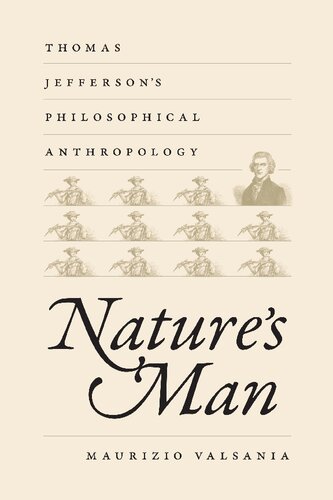

Most ebook files are in PDF format, so you can easily read them using various software such as Foxit Reader or directly on the Google Chrome browser.
Some ebook files are released by publishers in other formats such as .awz, .mobi, .epub, .fb2, etc. You may need to install specific software to read these formats on mobile/PC, such as Calibre.
Please read the tutorial at this link: https://ebookbell.com/faq
We offer FREE conversion to the popular formats you request; however, this may take some time. Therefore, right after payment, please email us, and we will try to provide the service as quickly as possible.
For some exceptional file formats or broken links (if any), please refrain from opening any disputes. Instead, email us first, and we will try to assist within a maximum of 6 hours.
EbookBell Team

0.0
0 reviewsAlthough scholars have adequately covered Thomas Jefferson’s general ideas about human nature and race, this is the first book to examine what Maurizio Valsania terms Jefferson’s "philosophical anthropology"―philosophical in the sense that he concerned himself not with describing how humans are, culturally or otherwise, but with the kind of human being Jefferson thought he was, wanted to become, and wished for citizens to be for the future of the United States. Valsania’s exploration of this philosophical anthropology touches on Jefferson’s concepts of nationalism, slavery, gender roles, modernity, affiliation, and community. More than that, Nature's Man shows how Jefferson could advocate equality and yet control and own other human beings.
A humanist who asserted the right of all people to personal fulfillment, Jefferson nevertheless had a complex philosophy that also acknowledged the dynamism of nature and the limits of human imagination. Despite Jefferson's famous advocacy of apparently individualistic rights to life, liberty, and the pursuit of happiness, Valsania argues that both Jefferson's yearning for the human individual to become something good and his fear that this hypothetical being would turn into something bad were rooted in a specific form of communitarianism. Absorbing and responding to certain moral-philosophical currents in Europe, Jefferson’s nature-infused vision underscored the connection between the individual and the community.